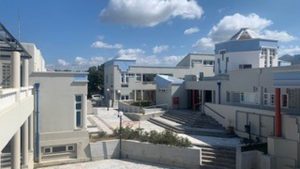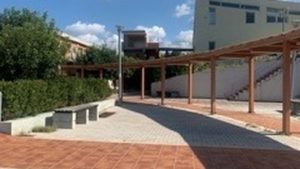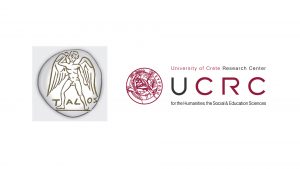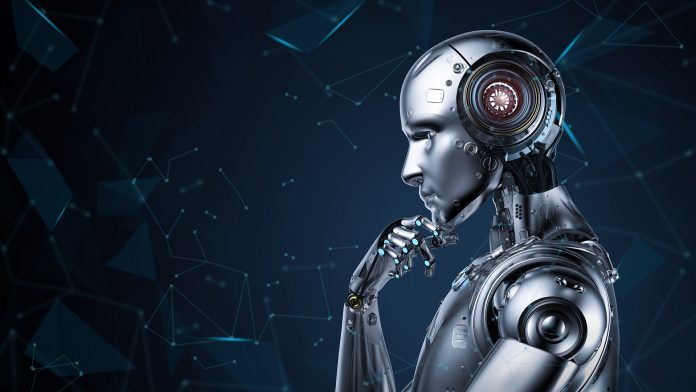The TALOS-AI4SSH project is setting up a Centre of Excellence in Digital Humanities at the University of Crete, Greece.
The TALOS-Artificial Intelligence for Humanities and Social Sciences (TALOS-AI4SSH) project gets its name from ancient Greek mythology. Talos was an ancient bronze giant whose mission was to protect Crete from pirates. Nowadays, Talos is usually considered the symbol of Artificial Intelligence (AI).
The TALOS-AI4SSH project received €2.5m in funding from the European Commission (HORIZON-WIDERA-2022-TALENTS-01-01-ERA Chairs) in order to set up a Centre of Excellence in Digital Humanities at the University of Crete, Greece.
The new centre will be integrated at the University of Crete Research Centre (UCRC) for the Humanities, the Social and Education Sciences.
About the University of Crete
Established in 1978, the University of Crete (UoC), ranked among the top Greek universities, is a young public educational institution sited in a region rich in ancient and modern Mediterranean cultures.
Currently, around 20,000 undergraduate and graduate students study at the UoC, at the Schools of Philosophy, Education, Social Sciences, Sciences & Technology, and Medicine. They are taught by outward-looking academic staff committed to quality in teaching, research, and community partnerships.
The UoC is the only Greek University, to date, that has been awarded with the ‘HR Excellence in Research’ logo.
Aligned objectives
The objectives set by the TALOS-AI4SSH project align with the EU Social Sciences and Humanities (SSH) integration and digital agenda.
The project will expand the research and innovation potential, generate new knowledge, strengthen innovation and knowledge transfer activities, create industry-driven projects, and build capacity through combined academic-industry training.
In close collaboration with local and global industry partners, the TALOS-AI4SSH project will support SSH-informed evidence-based AI policymaking, develop key combined digital SSH competencies, and produce interdisciplinary solutions to both societal and technological AI issues.

What is the vision of the TALOS-AI4SSH project?
The vision of the TALOS-AI4SSH project is to train a new generation of hybrid scholars who will combine knowledge and skills from both the humanities and computer science sectors.
“A vision is needed for new educational curricula, combining knowledge from the humanities, the social sciences, and engineering studies. Education on computer science /informatics and its societal impact must start as early as possible. Students should learn to combine information-technology skills with awareness of the ethical and societal issues at stake.”
(Vienna Manifesto on Digital Humanities)
“The traditional separation between humanities, arts, social sciences and STEM (Science, Technology, Engineering and Mathematics) is not suitable for the needs of the digital age. Artificial Intelligence is not a STEM discipline. It is in essence trans-disciplinary and requires a spectrum of capabilities that is not covered by current education curricula. It is urgent to redesign studies. This also gives a unique opportunity to truly achieve inclusion and diversity across academic fields.”
(V. Dignum, Responsible AI)
What is TALOS’ mission?
TALOS’ mission focuses on the need for AI that is reflective about the nature of intelligence and humanity. It also addresses the requirement for SSH that is transformative and embraces the methodological advances of AI to generate innovation and impact.
TALOS will combine the strengths of neural networks with symbolic reasoning to create a scalable, sustainable, and explainable representation of knowledge in the humanities and the social sciences.
HORIZON-WIDERA call
The TALOS-AI4SSH project was selected for funding in the HORIZON-WIDERA call ‘ERA Chairs’. This programme aims to help universities to promote structural changes and to achieve excellence on a sustainable basis.
This is done under the guidance of a prominent researcher. The ERA Chair Professor then sets up a team and undertakes tasks, such as supervision, research, teaching etc., that contribute to the educational and research upgrading of the host institution.
ERA chair holder
Christophe Roche is the ERA chair holder at the University of Crete. He is a Professor in Artificial Intelligence at the University of Savoie Mont-Blanc (France), a special appointment Professor at the University of Liaocheng (China, National Talent), and Head of the Condillac research group (France), and KETRC Lab (China).
He started his career in the private research sector in Artificial Intelligence (Paris) and taught in Switzerland (Neuchatel) and in Paris for over ten years (INALCO, Paris Dauphine). He was researcher and lecturer at the University Nova of Lisbon (2009-2022).
His domains of interest are knowledge engineering (ontology), linguistics (terminology), digital humanities and the semantic web.
In 2007, he created the TOTh international conference on terminology and ontology, which he has been organising every year since, also chairing its scientific committee. He also chairs the terminology committee of AFNOR (Paris) in relation with ISO.
Roche has set up and participated in 14 international projects, including ten EU-funded projects. He has set up PhD courses and summer schools in France, Portugal, and China in Artificial Intelligence, linguistics, and digital humanities.
Since March 2023, Professor Roche has joined the Department of Philology of the UoC on a five-year contract.
A Centre of Excellence in Digital Humanities at the University of Crete
The TALOS-AI4SSH project is setting up a Centre of Excellence in Digital Humanities. The activities of the new centre are being directed by Professor Roche and include:
- High-level research in a variety of cutting-edge interdisciplinary fields such as digital classics, digital archaeology, technologies of education, digital literary studies, and computational linguistics;
- New teaching subjects at all levels (BA, MA, and Doctoral), combining skills from the Humanities and Computer Sciences;
- Training activities for the academic community, students, and the wider public;
- Establishing links between industry and academia (through industrial PhDs and common projects); and
- Enhancing international visibility and networking of the University of Crete through the signing of MoUs with universities and research centres in Greece and abroad.

What impact will the TALOS-AI4SSH project have?
The TALOS-AI4SSH project is expected to have a significant impact in the following areas:
- Research: The research project will focus on the following topics: digital classical studies, digital archaeology, digital educational research, digital literary studies, and computational linguistics. PhD and post-doctoral candidates will work on these topics under the guidance of Professor Roche and UoC staff.
- Innovative training: In the framework of the TALOS-AI4SSH project, new courses will be introduced at all levels (BA, MA, Doctoral). In addition, scholars will be invited to provide training for the academic community on specialised topics. Finally, activities for a larger audience have been designed, such as summer schools and open online courses (MOOCs).
- International visibility and outreach: The TALOS-AI4SSH project is supported by a wide network of scientists and institutions, both Greek and international. Distinguished scientists from Greece and abroad participate in the Advisory Board of the project, while co-operation has also been developed with important institutions for digital humanities, such as Clarin-EL, the Cyprus University of Technology, two COST European funding actions, the interdisciplinary research networks Distant Reading and Nexus Linguarum, and the Post-Scriptum company. As part of the international visibility and outreach activities, conferences, workshops, and lectures will be organised.
- Sustainability: In order to ensure the sustainability of the new centre, excellent scientists, post-doctoral fellows, and doctoral candidates will be attracted who, in turn, under the guidance of Professor Roche and members of the research team, will contribute to increasing the centre’s funding through grants, awards and new research projects.
- Institutional reforms: In collaboration with ERA Chairs of Greek institutions, efforts will be made to promote institutional reforms that will contribute to the improvement of working conditions in Greek HEIs and research centres and their further internationalisation.
Aims and objectives
The project is designed to:
- Address important research questions in hybrid (neurosymbolic) AI that drive innovation for SSH;
- Attract and maintain an excellent team of researchers;
- Introduce new courses at all levels (BA, MA, PhD);
- Create new open datasets and open-source tools for the digital humanities;
- Disseminate new knowledge via conferences, workshops, articles, doctoral dissertations;
- Focus on the popularisation of new knowledge through global outreach initiatives;
- Enhance the international visibility of the UoC, grow networks, increase UoC success in international funding schemes, and lead to brain gain; and
- Foster institutional reforms through research and teaching in the multidisciplinary area of AI for SSH.
Research topics
The key research topics are:
1. Semantic annotation of texts;
2. Classifying and naming objects;
3. Pattern recognition in literary/journalistic corpora;
4. Digitisation and datafication of education;
5. Hybrid AI-NLP Software for SSH; and
6. Standards for SSH.

![]()
The TALOS-AI4SSH Project is funded by the Horizon Europe Programme under grant agreement No. 101087269.
Please note, this article will also appear in the fifteenth edition of our quarterly publication.









